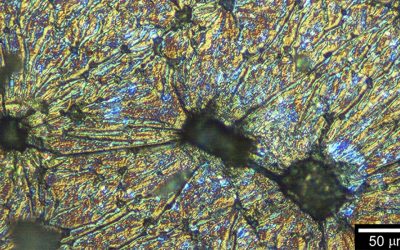Journal of Applied Polymer Science Special Issue
Sustainable Polymers and Polymer Science: Dedicated to the Life and Work of Richard P. Wool
Guest Edited by two of Richard’s collaborators and former students: Dr Joseph F. Stanzione, III (Rowan University, U.S.A.) and Dr John J. La Scala (U.S. Army Research Laboratory, U.S.A.).
Richard P. Wool, Ph.D., Professor, FRSC, dedicated his professional career to gaining a more holistic understanding of polymer science, fabricating polymers and composites from renewable resources, and ultimately, aiding society to develop sustainable technologies. To commemorate his achievements and to continue his efforts in these fields, the Journal of Applied Polymer Science is calling for papers for a special issue on polymers and polymer science that will be dedicated to his life and work.
Deadline for submissions: 15th February 2016
Recent concerns over the social and economic impact, and the environmental sustainability of the production and consumption of plastics, have driven an initiative toward the development of polymers and composites derived from renewable resources. As a result, bio-based polymers and composites, including those that are bio-renewable and biodegradable, are becoming considerably attractive as viable alternatives to their petrochemical-based counterparts. At the same time, a fundamental understanding of the nature and structure of the glass transition in amorphous materials is currently seen as a major unsolved problem in solid-state physics, including that of polymers. Importantly, the glass transition of an amorphous material and the proximity of that material to its glass transition temperature are believed to dictate both its chemical and physical behavior, including fracture and fatigue. Hence advancing our knowledge of the glass transition and its relationship to polymer properties, and increasing our understanding of polymer fracture and fatigue, all play pivotal roles in sustainably producing polymer-based materials for a wide range of applications. Examples are high-performance plastics and coatings, therapeutics, medical, the food and beverage industry, and energy production and storage.
The Journal of Applied Polymer Science is focused on applications of polymeric materials, thus topics covered in the Special Issue will include:
- plant oil-based plastics;
- lignin-based plastics;
- cellulose-based plastics;
- use of bio-based fibers in composites;
- the relationship between the glass transition temperature and polymer properties;
- fracture and fatigue of bio-based polymers.
Manuscripts for this Special Issue will be:
- submitted through our online submission system;
- high quality contributions showcasing unpublished research;
- rigorously peer reviewed as any other paper in the Journal of Applied Polymer Science;
- clearly marked at submission by the authors as intended for the Special Issue on Bio-based Packaging.
Please alert the editors of the Journal of Applied Polymer Science if you plan to submit a paper for this Special Issue.

















